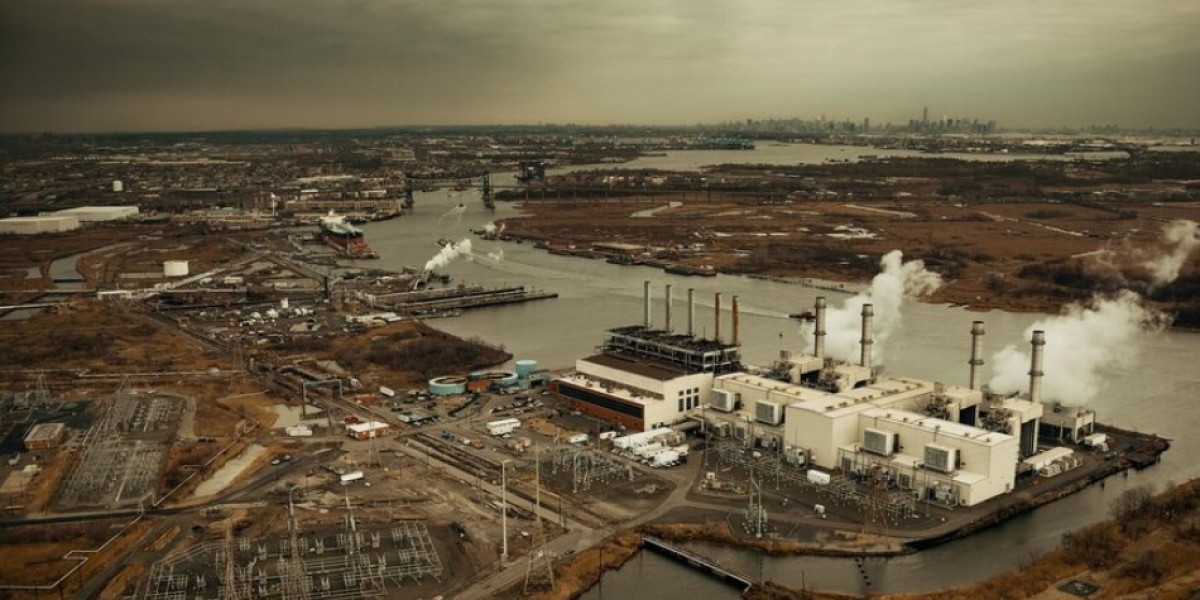Climate change is one of the biggest global challenges, influencing industries across the board—including the heating oil sector in the United Kingdom. As temperatures rise, government policies tighten, and consumer preferences shift, the heating oil industry must adapt to remain viable. While heating oil has been a reliable source of warmth for thousands of UK homes, concerns over carbon emissions and environmental sustainability are driving significant changes.
This article explores the key ways in which climate change is reshaping the heating oil industry in the UK, examining demand fluctuations, regulatory pressures, alternative energy solutions, and the future landscape of home heating.
1. Rising Temperatures and Decreasing Heating Oil Demand
The UK has experienced some of the warmest years on record, reducing the reliance on heating oil, particularly during milder winters. Data from the UK Met Office suggests that average winter temperatures have increased, leading to shorter, less severe cold seasons.
How This Affects the Heating Oil Industry
- Lower Seasonal Demand: With fewer cold months, heating oil users require less fuel, affecting sales volumes for suppliers.
- Unpredictable Weather Patterns: Warmer winters combined with occasional extreme cold snaps make demand forecasting more challenging. Suppliers struggle to maintain efficient stock levels, leading to potential overstocking or shortages.
- Changing Consumption Habits: Homeowners are increasingly improving insulation and upgrading heating systems, further reducing reliance on heating oil.
While the heating oil market is still strong in rural and off-grid areas, the long-term impact of rising temperatures cannot be ignored.
2. Stricter Government Policies on Carbon Emissions
The UK government has set an ambitious goal of reaching Net Zero carbon emissions by 2050. As part of this plan, fossil fuel-based heating is facing tighter regulations and increasing costs.
Key Policy Changes Affecting Heating Oil
- Ban on New Oil-Fired Boilers (From 2025) – The UK government has announced that new homes will no longer be built with fossil fuel-based heating systems, including oil boilers.
- Higher Carbon Taxes – New carbon levies are increasing the price of traditional heating oil, making alternative energy sources more competitive.
- Incentives for Low-Carbon Heating – Grants like the Boiler Upgrade Scheme encourage homeowners to switch to heat pumps and other renewable systems.
Impact on the Industry
These regulations put heating oil suppliers under pressure to transition towards cleaner, more sustainable fuel options. Companies unwilling to adapt risk losing their market share as consumers shift to government-backed green solutions.
3. The Rise of Alternative Heating Fuels
With government policies pushing for decarbonization, the heating oil industry is seeing a rise in renewable and low-emission fuel alternatives.
Popular Alternatives to Traditional Heating Oil
- HVO (Hydrotreated Vegetable Oil): A low-carbon fuel made from waste vegetable oils, HVO produces up to 90% fewer carbon emissions compared to regular heating oil. Some UK suppliers have already started offering HVO as an option.
- Biofuels & Blended Fuels: A mix of traditional heating oil and bio-based components reduces environmental impact while maintaining compatibility with existing oil boilers.
- Heat Pumps & Electric Heating Systems: While not direct replacements, many heating oil users are transitioning to electricity-based solutions, reducing reliance on fossil fuels.
Challenges in Adoption
- Higher Upfront Costs: Alternative fuels and systems can be more expensive to install, slowing widespread adoption.
- Supply Chain Limitations: HVO and biofuels are not yet widely available across all regions in the UK.
- Consumer Awareness Issues: Many homeowners remain unaware of viable low-carbon alternatives to heating oil.
Despite these hurdles, the industry is seeing steady progress in promoting cleaner heating solutions.
4. Heating Oil Price Volatility Due to Climate Factors
Climate change is also affecting heating oil prices by disrupting global supply chains. Extreme weather events, such as hurricanes and floods, are impacting oil production and transportation, leading to fluctuations in availability and pricing.
Factors Influencing Heating Oil Prices
- Extreme Weather Events: Climate-related disasters disrupt global oil production, causing supply shortages and price spikes.
- Regulatory Costs: Increasing environmental regulations result in higher taxation on fossil fuels, pushing prices upward.
- Global Energy Market Shifts: As the world moves away from oil, the market demand decreases, potentially leading to reduced investments in heating oil infrastructure.
For UK consumers, this means that heating oil prices are increasingly unpredictable, making it harder to budget for winter heating costs.
5. Changing Consumer Behaviour and Market Adaptation
With growing awareness of climate change and energy efficiency, UK homeowners and businesses are reconsidering their heating choices.
Notable Trends Among Heating Oil Users
- More Efficient Fuel Usage: Homeowners are adopting smart thermostats and energy-efficient boilers to minimize heating oil consumption.
- Increased Interest in Green Energy: More consumers are exploring alternative heating options, driven by environmental concerns and government incentives.
- Community Buying Schemes: Rural communities are forming bulk purchasing groups to negotiate better heating oil prices, adapting to market volatility.
How Suppliers Are Responding
- Offering Biofuel Blends: Many heating oil suppliers are now introducing low-carbon fuel options to stay relevant.
- Improving Delivery Efficiency: Companies are optimizing distribution routes and stock management to handle fluctuating demand more effectively.
- Educating Consumers: Increased efforts to inform customers about cost-saving measures and eco-friendly alternatives.
6. The Future of the UK Heating Oil Industry
Given the ongoing impact of climate change, the future of the UK heating oil industry is likely to involve a gradual shift towards sustainable solutions.
Predicted Industry Trends
- More Widespread Use of HVO and Biofuels – As production scales up, renewable heating fuels will become more accessible and affordable.
- Stronger Government Intervention – Future policies may further restrict heating oil use, making low-carbon transitions essential for survival.
- New Technological Innovations – Advancements in fuel efficiency, synthetic fuels, and hybrid heating systems will offer new alternatives.
- Market Consolidation – Smaller oil suppliers may merge or pivot towards renewable energy services to remain competitive.
While traditional heating oil still has a role to play, its dominance is fading as the UK moves towards carbon-neutral heating solutions.
Conclusion
Climate change is having a profound impact on the UK heating oil industry, influencing everything from seasonal demand to government regulations and market trends. Rising temperatures are reducing the need for oil-based heating, while new policies and carbon taxes are making it less financially viable in the long run.
As the transition to greener energy sources accelerates, heating oil suppliers must adapt to remain relevant. This means investing in low-carbon fuel alternatives, improving efficiency, and embracing new technologies. For homeowners, the future will require smarter energy choices, better insulation, and consideration of renewable heating solutions.
While the industry still has a role to play in the UK’s energy landscape, the path forward is clear—innovation and sustainability will determine who thrives and who falls behind in a rapidly changing climate.




